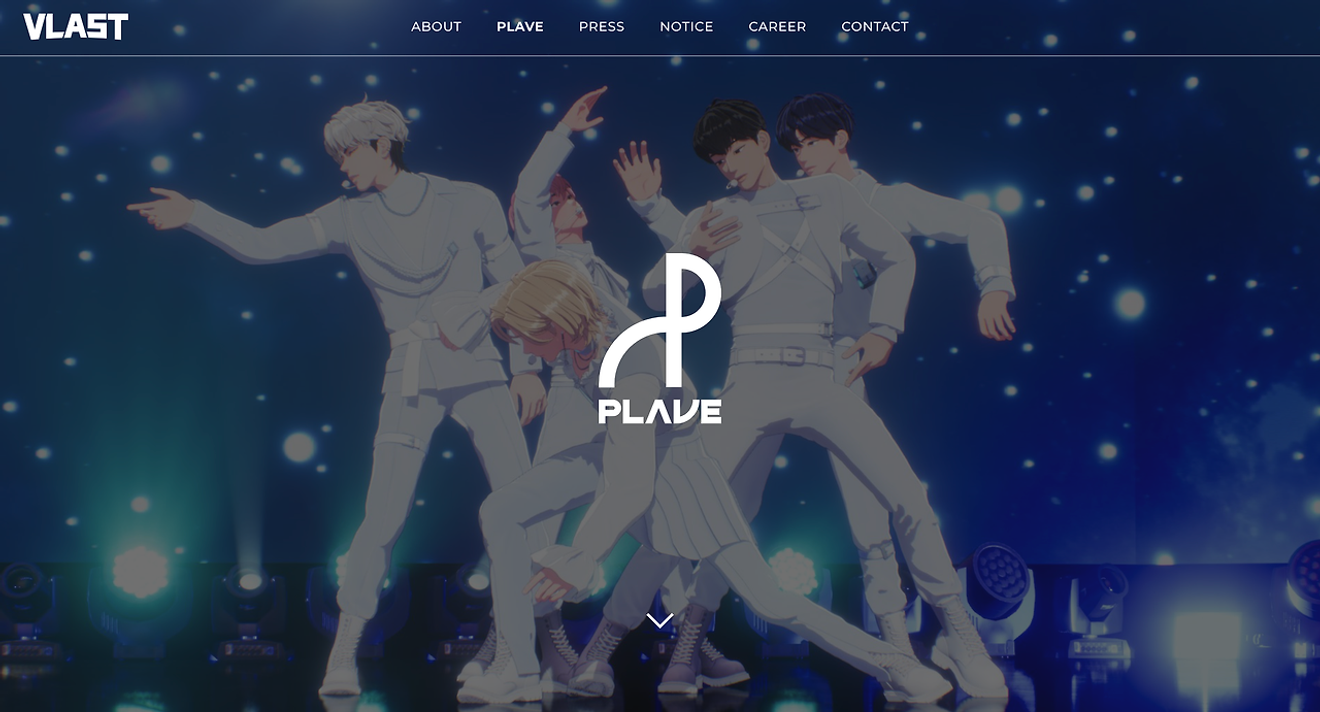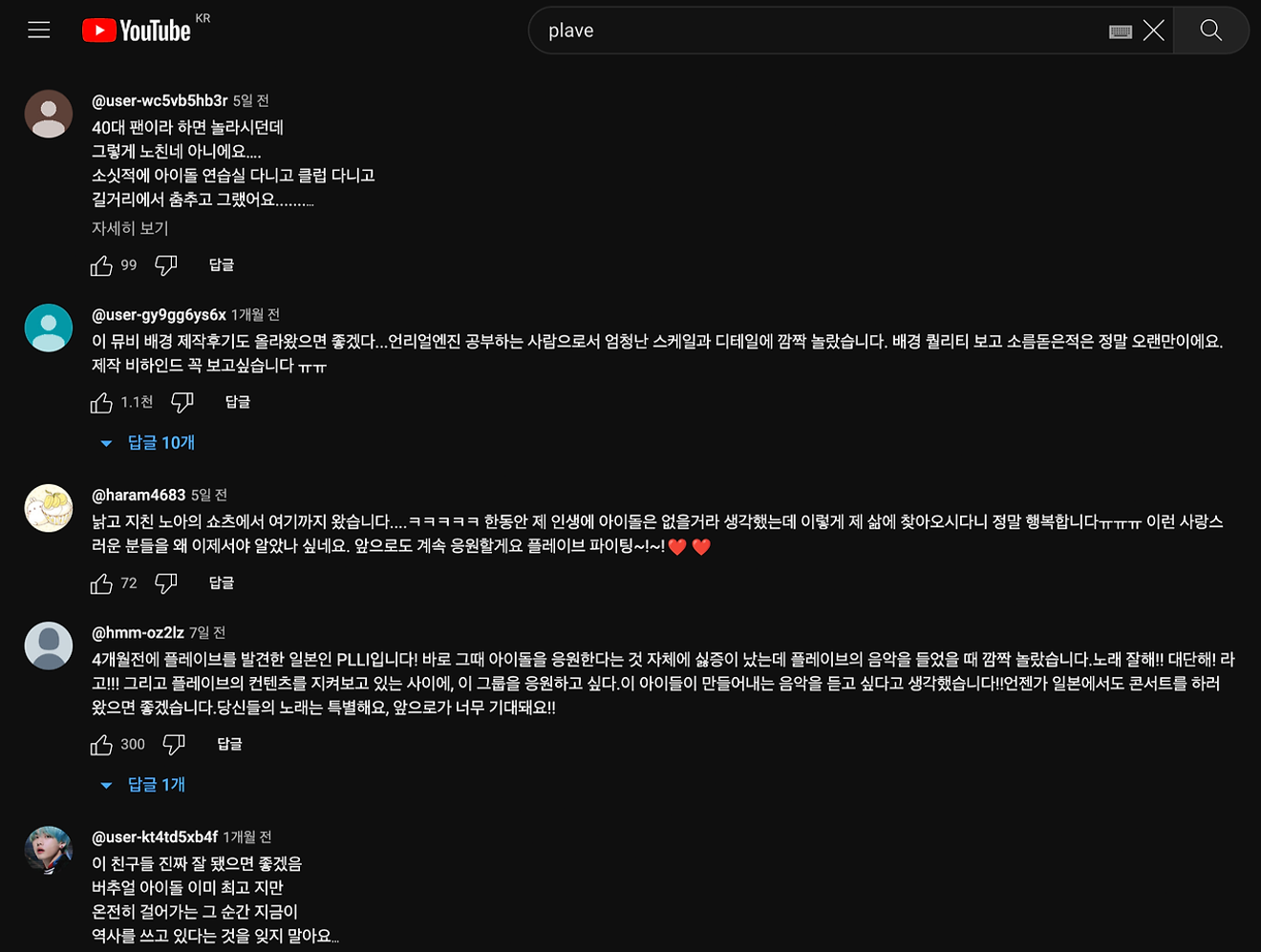Playave, a known virtual idol group, achieved first place on a terrestrial music chart program last month. Anticipated to have tens of thousands of fans, this group consists of five members represented by 3D characters using real-time rendering technology, with real individuals behind them. Blast, their agency, is a tech company aiming to create real-time interactive virtual IPs through game engines and motion capture retargeting, making Playave's success a unique case compared to other idol fandoms.

Since 1994, when New York University professor Barbara Stern emphasized the importance of authenticity in branding, authenticity has spread like a fervent cultural phenomenon within the corporate marketing realm.
Digital anthropologist Logan McLoughlin discusses the significance of authenticity within the industry, using the gaming industry as an example, highlighting the tension between fan culture and commercialization. He defines the modern concept of fandom as inherently participatory, arguing that cultural industries rise or fall based on fan engagement.This engagement and the encouragement of it motivate fans to become creators who contribute to the vast sea of content that gives rise to fandoms. Capitalism, in turn, capitalizes on the passion of these creators, transforming content creation into a stage for authentic advertising. Therefore, he maintains that the commercialization of fan communities should not inherently undermine authenticity, emphasizing the crucial balance between commercial goals and community growth..
In this context, Playave's success can be seen as a case study demonstrating that authenticity towards these fandoms remains the most critical element, even when the activity is driven by technological innovation through a character rather than a real person at the forefront. Blog posts from self-proclaimed fans overflow with expressions urging their favorite artists to acknowledge them, filled with the term 'iruk dok moment' (fandom initiation moment) and accompanied by character introductions and short animated images. This practice is not significantly different from conventional fan activities like sharing photos of idols playfully smiling and laughing with soft filters in online communities. In essence, once interested in music and choreography, fans no longer seem to prioritize the distinction between a real person and a virtual character. This indicates a willingness to openly express their identities as a core part of the fandom.
Furthermore, the demonstration that authentic experiences and emotional connections are achievable through technological mediation showcases the reinterpretation of the concept of authenticity by leading fans. It's reported that Playave encountered negative reactions regarding choreography, song quality, and venue booking due to their virtual group status. Subsequently, information about the real individuals behind the characters actively leading composition and choreography work provided a justifiable basis for fans to counteract negative online comments directed at this novel form of fandom.

This shift in fandom towards an interactive and creative space, along with the redefined meaning of commercial authenticity, elevates Playave's success beyond a mere entertainment example, establishing it as a benchmark for observing a crucial trend of change in modern society and cultural interactions. Most importantly, the boundless possibilities of expression enabled by 3D virtual characters that transcend physical limitations hold the potential to transform the very texture of competitiveness across industries. Riot Games, renowned for League of Legends, has already released music and music videos featuring their game characters in a girl group concept. These videos achieve 600 million views through unprecedented scenarios and presentations, such as characters calmly sitting between oncoming subway trains and gazing into the camera.
Authenticity is often one of the furthest things from what brands pursue in the reality of corporate marketing. However, this term now serves as a backdrop for fostering a sense of legitimacy within fandoms through the power of digital technology. Instead of simply focusing on how to make people pay, we're witnessing how crucial authenticity is to commercial growth by planting the seed of a legitimate concern: how can we empower fans? We are seeing how crucial authenticity as a seed that fosters a legitimate concern – how can we empower fans – is to commercial growth. Other industries should carefully examine the significance and value of this shift in authenticity through technological mediation. Perhaps there will never be a more authentic example of commercialization in brand marketing in the future.
References
Comments0